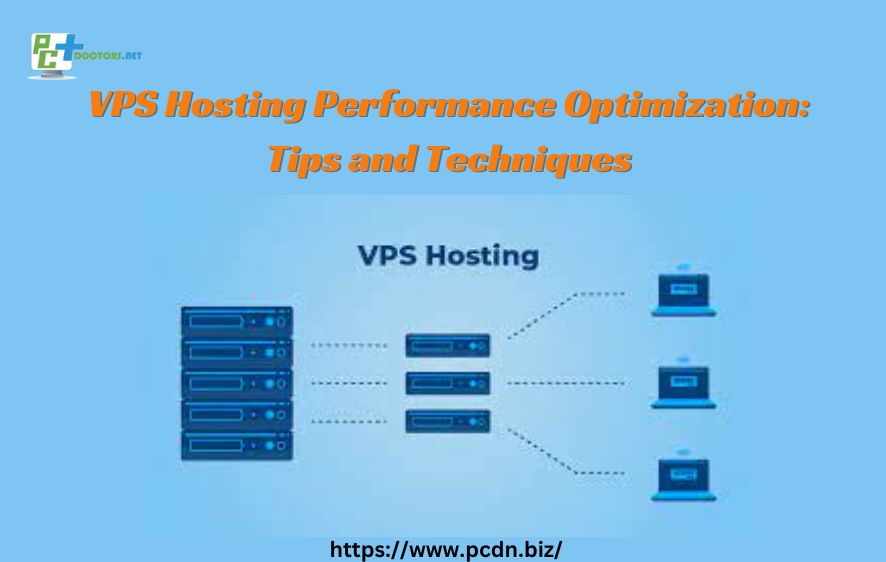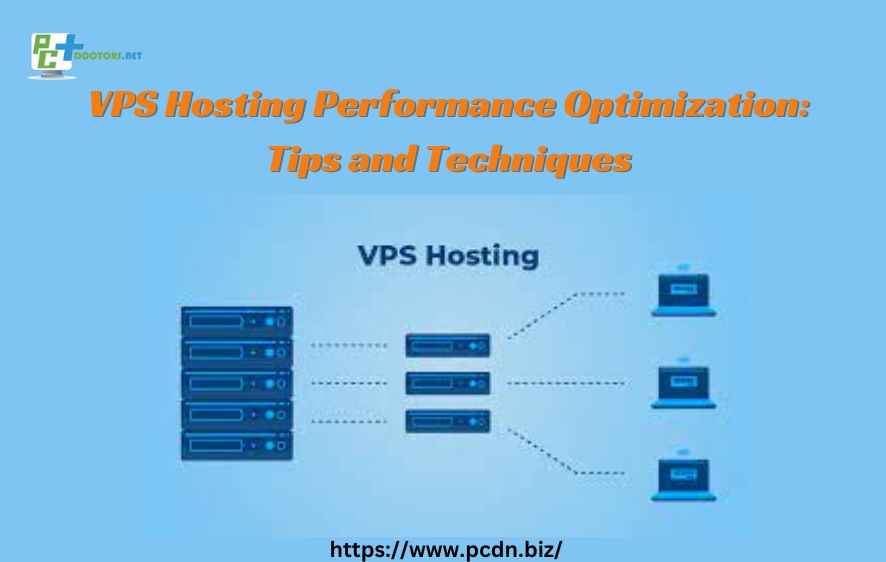VPS Hosting Performance Optimization: Tips and Techniques
Introduction:
In the fast-paced digital landscape, website performance is paramount, and Virtual Private Server (VPS) hosting plays a pivotal role in ensuring a seamless online experience. To maximize the potential of your VPS hosting, it’s crucial to implement performance optimization techniques. In this article, we’ll explore some tips and techniques to help you boost your VPS hosting performance.
What is VPS Hosting?
VPS hosting involves partitioning a physical server into multiple virtual compartments. These virtual servers operate independently, ensuring dedicated resources such as CPU, RAM, and storage. This results in enhanced stability and performance compared to shared hosting. The versatility of VPS hosting allows you to easily adjust your resources up or down according to your requirements, making it well-suited for businesses of all sizes. Whether you’re running a personal blog, a comprehensive eCommerce platform, or a complex web application, VPS hosting, especially for eCommerce websites, can be tailored to meet your specific needs.
Why Optimize VPS Hosting Performance?
Optimizing a virtual private server (VPS) in hosting goes beyond technicalities; it significantly influences user experience and offers numerous advantages for businesses. Recognizing the significance of customizing a VPS is crucial for optimal performance, and identifying typical bottlenecks is essential to ensure the smooth operation of your VPS.
The Impact of Performance on User Experience
Frustration-Free Browsing:
Sites that load slowly can lead to higher bounce rates as users may become frustrated with errors or delays in loading. Visitors encountering such issues are likely to leave the website, contributing to elevated bounce rates, which signify visitors leaving the site.
Improved User Satisfaction:
On the flip side, a finely tuned VPS hosting setup guarantees a seamless user experience. Users benefit from swift page loading, reliable performance, and minimal downtime, all of which contribute to increased satisfaction.
Optimize the performance of your VPS hosting with these tips:
Tip 1: Choose the Right VPS Plan
Choosing the appropriate VPS hosting plan is crucial. Prior to delving into VPS optimization, it’s essential to evaluate your resource requirements. Start by analyzing your website’s needs in terms of RAM, CPU, and storage. Take into account your growth expectations and traffic patterns. When selecting a plan, aim for one with ample resources that strikes the right balance of CPU power, storage, and RAM capacity to comfortably meet your website’s demands. Additionally, consider scalability options. Opt for a VPS plan that enables you to swiftly scale your resources up or down based on evolving needs, ensuring adaptability to future growth or sudden spikes in traffic.
Tip 2: Optimize Server Resources
Effectively managing servers is critical for optimal performance. It is important to routinely assess resource utilization by monitoring CPU, RAM, and disk usage to identify potential bottlenecks. Employ monitoring tools to pinpoint processes that may be consuming excessive CPU or RAM, and make necessary adjustments to their resource allocations or optimize them. Additionally, fine-tune resource allocation by prioritizing critical processes and limiting resources for non-essential ones. Striking a balance in resource allocation is essential to ensure the overall efficiency of the server.
Tip 3: Secure Your VPS
Securing your website begins by understanding essential VPS security best practices. Utilize firewall tools such as UFW (Uncomplicated Firewall) or iptables to manage network traffic and shield your VPS from unauthorized access. It is imperative to regularly update and patch software to ensure that your server’s applications and software remain current. This proactive approach is crucial for security, as vulnerabilities in outdated software can be exploited by potential threats.
Tip 4: Regular Updates and Maintenance
Consistently update your server’s operating system and install software updates to address security vulnerabilities and enhance performance. Conduct regular backups to protect your data from potential loss or corruption, ensuring reliable data recovery. Additionally, continuously evaluate and fine-tune your optimization strategies based on evolving requirements and emerging technologies.
Tip 5: Use (CDN)
A Content Delivery Network (CDN) distributes your website’s content across servers located in diverse locations, reducing latency and enhancing loading speeds. By delegating tasks such as delivering images and scripts to the CDN server, you can alleviate the strain on your Virtual Private Server (VPS), resulting in quicker response times. CDNs not only provide optimized content delivery but also offer DDoS protection, contributing to a faster and more dependable user experience on your website.
Avoiding common mistakes is crucial when optimizing the performance of a VPS server:
Inadequate Resource Allocation:
Optimizing performance relies on effectively allocating resources such as CPU, RAM, and bandwidth to meet the specific requirements of your website. Enhancing these resources can result in improved overall performance.
Inefficient Code:
Inefficient code can have a detrimental impact on your website’s speed. This includes issues such as inefficient database queries, unoptimized images, and excessive use of JavaScript. It is essential to streamline and optimize your code to enhance overall performance.
Security:
Performance problems can arise from security issues, with attacks such as Distributed Denial of Service (DDoS) capable of overwhelming your VPS and resulting in downtime. To safeguard against these risks, it is crucial to conduct regular security audits and updates.
Conclusion:
In conclusion, optimizing VPS hosting performance is essential for delivering a seamless online experience to users. By following the tips and techniques mentioned above and partnering with PC Doctors.NET, you can achieve peak performance for your VPS hosting environment, enhancing the overall success of your online presence. Give us a call at +1 (346) 355-6002 (USA) / 1800-889-0674 (IND) / +44 (208) 089-3489 (UK).

